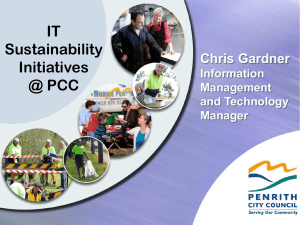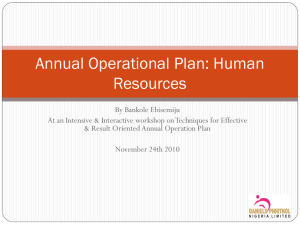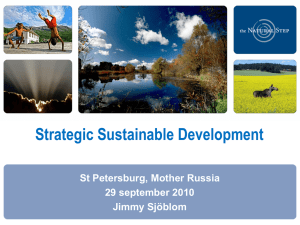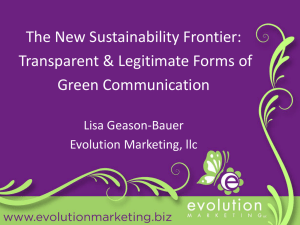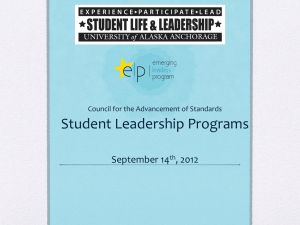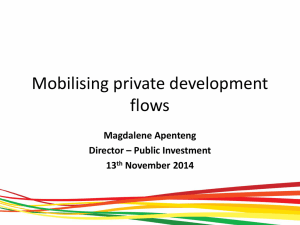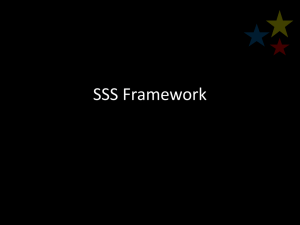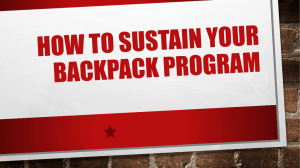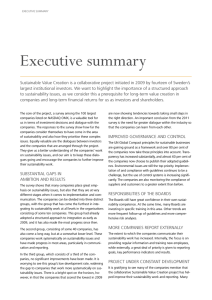Innovation Sustainability
advertisement
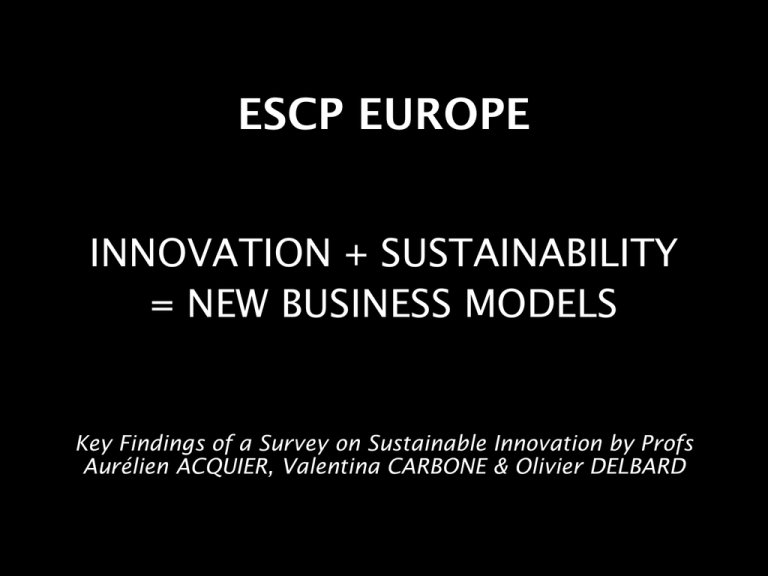
ESCP EUROPE INNOVATION + SUSTAINABILITY = NEW BUSINESS MODELS Key Findings of a Survey on Sustainable Innovation by Profs Aurélien ACQUIER, Valentina CARBONE & Olivier DELBARD Sustainability, Competitiveness & Innovation Demographic trends Energy transition World energy consumption ? Source: UN predictions and US census bureau Supply of Raw materials Source: J.M Jancovici 2012 sur UNEP Innovation How do companies respond? The questions asked • Innovation, sustainability, competitiveness… : what is the current level of awareness? • What are the mechanisms enabling sustainability issues to be integrated into innovation strategies? What are the key success factors? The sample 36 top managers of big companies and start ups in Europe • Interviews with top managers • On-line Questionnaire Functions: innovation Management, Marketing, sustainability… Sectors of activity: transportation, building, energy, luxury, mass retail… 312 international respondents on the importance and the management of sustainable innovation within their organizations. The Results: 7 KEY FINDINGS Key Finding n°1 The need to integrate sustainability into innovation strategies: A key issue, but a very destabilizing one! « if I gather 10 people in the same room and ask them to define sustainable innovation, I’ll get 30 different definitions! » Trevor Davis, Global Expert, IBM Innovation Product process Business Models & Sustainability Which actors? Environmental Which focus? Social Economic Key finding n°2 Large organizations tend to deal with sustainable innovation innovation process… as an incremental ... Before re-designing business models Sustainability and business model innovations Production Circular economy From product to service Consumption Environmental scope sharing economy (Collaborative production and consumption) Not for Profit, Social Business and Bottom of the Pyramid Social scope The ingredients of the sharing economy « Wired to share » Intensifying the use of material capital Key finding n°3 Disruptive innovations in the field of sustainability … … involve to rethink the relationship between the company and its ecosystem Thinking at a broader scale Natural eco-systems Business eco-systems Standardization agencies NGOs Suppliers competitors Companies Distributors Research & Educational institutions Public actors Other stakeholders Clients How to favor the emergence of sustainable business ecosystems ? 1. Capitalizing on distributed 2. Sharing & Structuring informations, intelligence within the ecosystem agreeing on shared objectives Intra-firm Open innovation Big data 3. Create platforms and rules for interconnecting actors Key Finding n°4 Implementing sustainable innovation ... ... Involves a total revamping of organizational strategies Which organizational models? Simplifiying innovation by desystemizing it Monitoring a series of innovative projects Creating new brands or divisions Conducting a policy of partnerships, acquisitions, financing Key Finding n°5 The need to mobilize new skills and new evaluation criteria « I don’t think many people could claim to have all the skills required for sustainability. It is multidisciplinary by nature. We need scientists, technicians, public affairs specialists, lawyers… » Catherine Tissot-Colle, Communication and Sustainability Director, Eramet « Our sustainability approach has to be long term, but today’s societies all think short term, which is the crucial point. » Sandrine Sommer, Sustainability Director, Guerlain Key finding n°6 Government & the Consumer: 2 key players, whose role remains ambiguous! Key Finding n°7 For sustainable innovation to be successful, It is necessary to learn from failures and develop an iterative approach! • Successful failures as sources of learning and opportunities The authors Pilar Acosta Aurélien Acquier Valentina Carbone Olivier Delbard Julie Fabbri Florent Gitiaux Delphine Manceau Catherine Ronge


